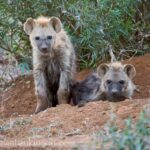Wildlife Highlights from 2019 (so far)
2019 (so far) has been an exciting and wild ride in terms of wildlife sightings. We’ve seen white rhinos in combat, we lost one of our most famous leopards and saw new cheetah and wild dog flourish in the reserve. Take a look at the story of 2019 so far of the wildlife in Madikwe Game Reserve.
January
2019 bloomed into life with beautiful green landscapes and lots of newborn babies.


The two sets of cheetah males encountered one other and a fight took place. Unfortunately one of the males was found badly injured. He was treated for the wounds but did not survive. His brother will be left to fend for himself.

February
Tsala, our resident leopardess was also wounded at the beginning of the year. We were very happy to spot her alive and well, making her own kills in February.


We spotted the Mica pride in the south on a giraffe kill as well in February. It seems they weren’t doing too badly as far as their confidence goes in the hunting department.
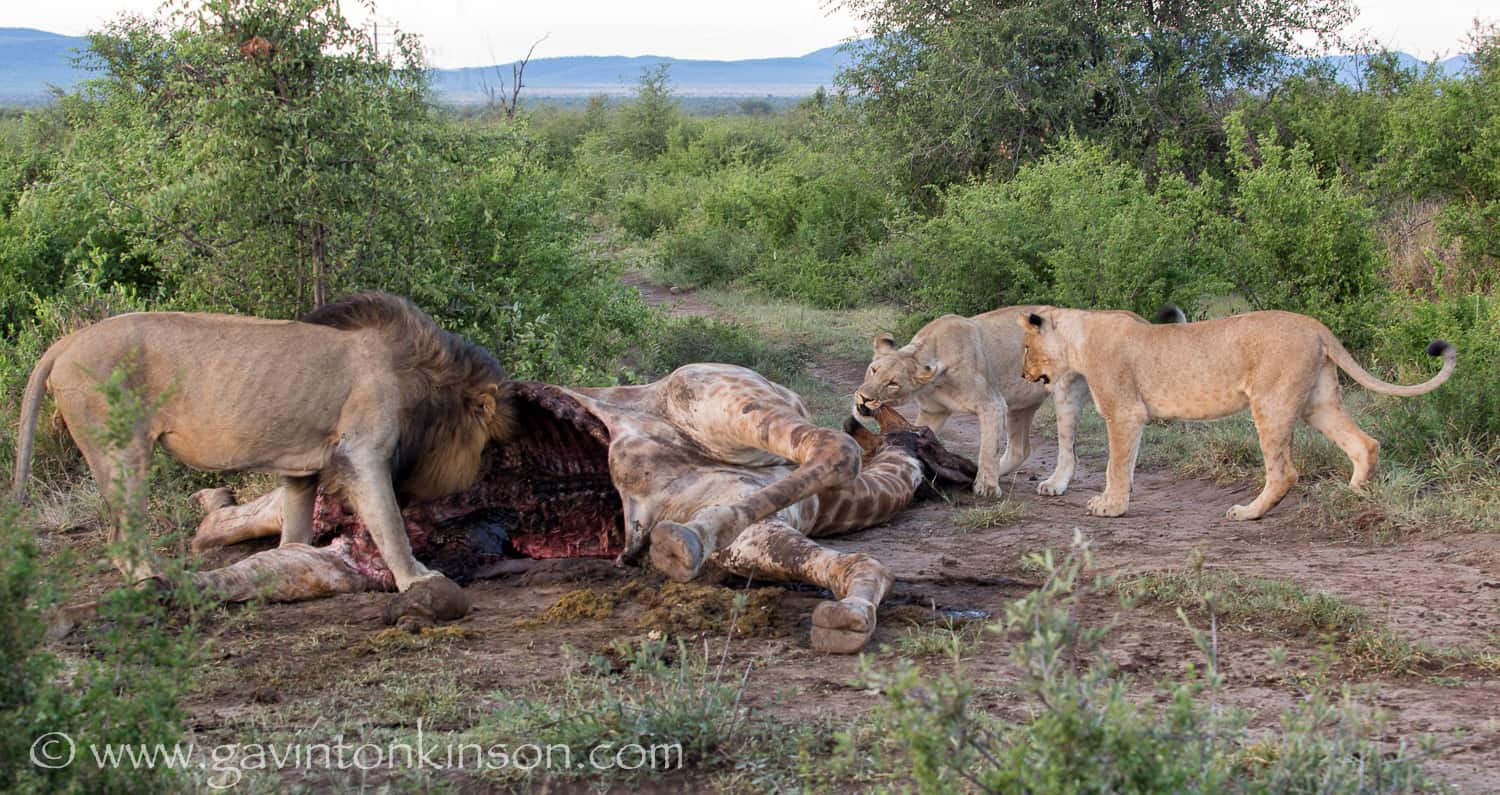
Munye, our resident male leopard was spotted with a zebra kill in a tree.
The clan of hyenas in the south appeared once again at the culverts under the airstrip in February, and appeared to have two new cubs that were very curious of the vehicles. The hyenas became a welcome addition to our daily sightings, especially early in the mornings, or late at night when they came out of their safe haven to groom, and socialise with the other members.
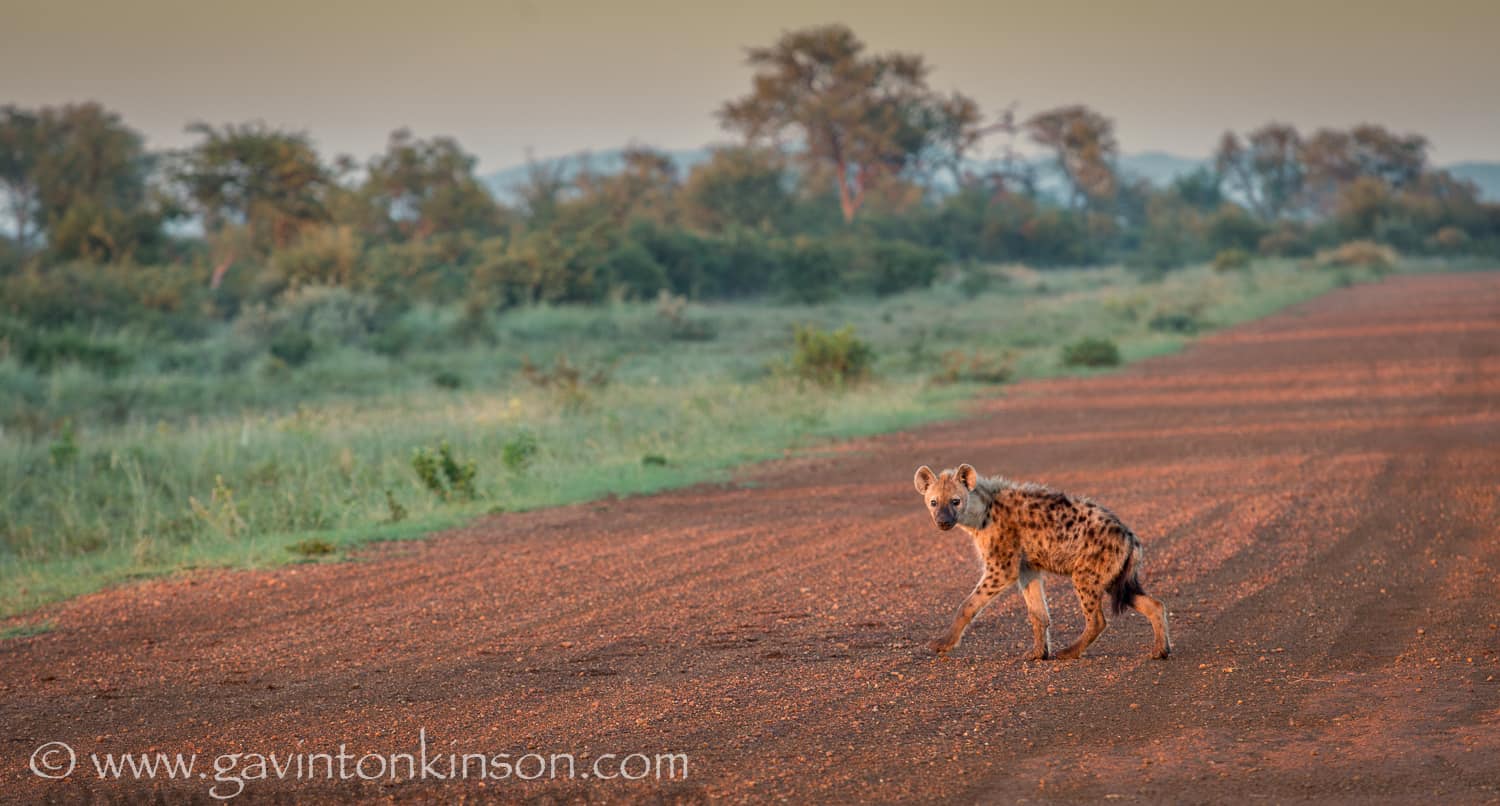
March
Temperatures started to quickly rise in March, reaching nearly 40 degrees. Waterholes became the centre of entertainment for us on game drives – with the ellies and other herbivores getting down and dirty in the muddy pools.


The two male lions who came in from the north earlier in the year were seen making their rounds – easily walking between 10 and 15km a night.


We also saw the single male cheetah (who’s brother was killed earlier in the year). He had settled into his solitary lifestyle and was doing well. We often saw him with a full belly.
We were also lucky enough to see both the packs of Wild Dogs in March, even when the full moon made it difficult to determine where they would be next. The original pack of 6 are still doing well.


We finally got to see Munye which ended the dry spell of more than a month of no leopard sightings. This made the finding so much more rewarding. We tend to forget how easily they can disappear for a day, a week or a month.
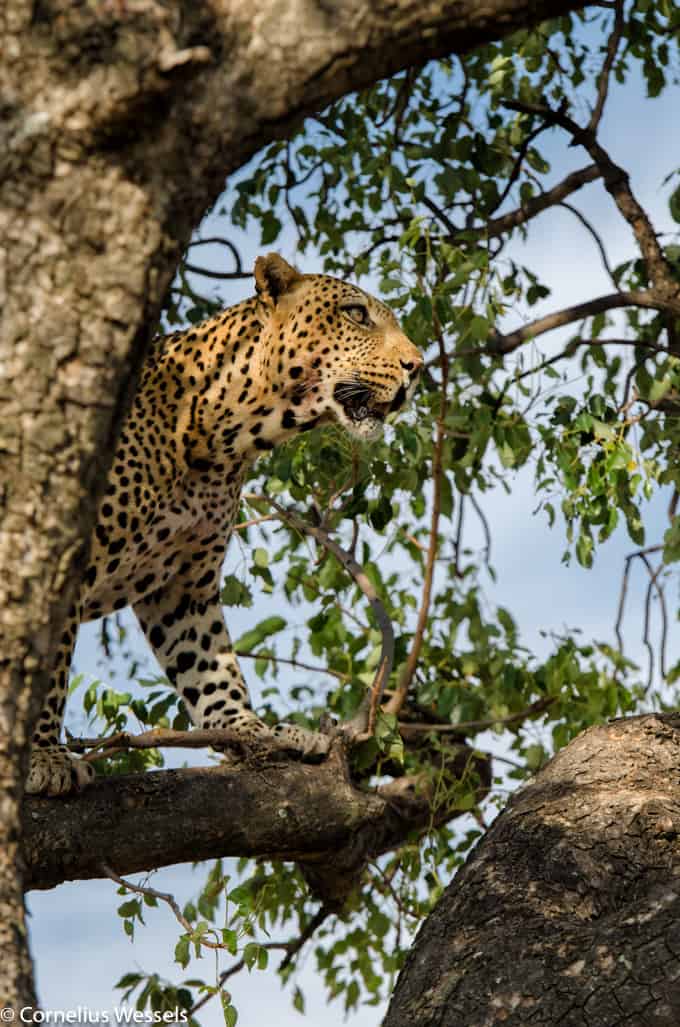
April & May
It was with great sadness we learned of the passing of our resident leopard female, Tsala. We hadn’t had a sighting of her in two months. For the last 13 years she was a huge presence on the ridge and will be sorely missed. We hope that her vacant territory will be filled by another female soon, so that we can start getting to now her.
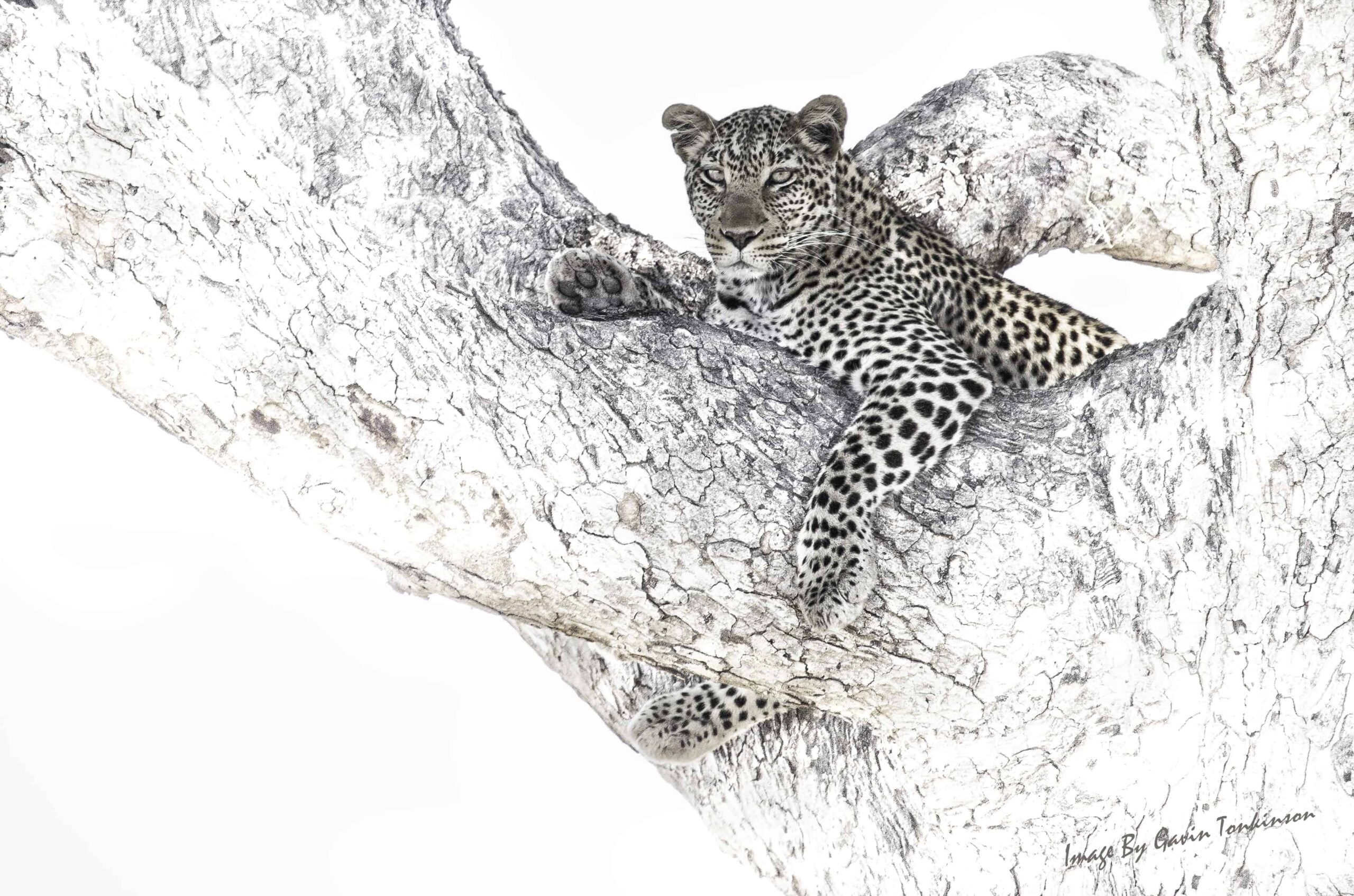
The good news is that a new female cheetah was getting ready to be released into the park. You can see her in her boma below.
The male who lost his brother in a fight with two cheetah from the north was removed from the reserve. He was relocated to Malawi.
Two new male lions were relocated to Madikwe from Addo National Park – a welcome bolster to the genetics within the reserve.
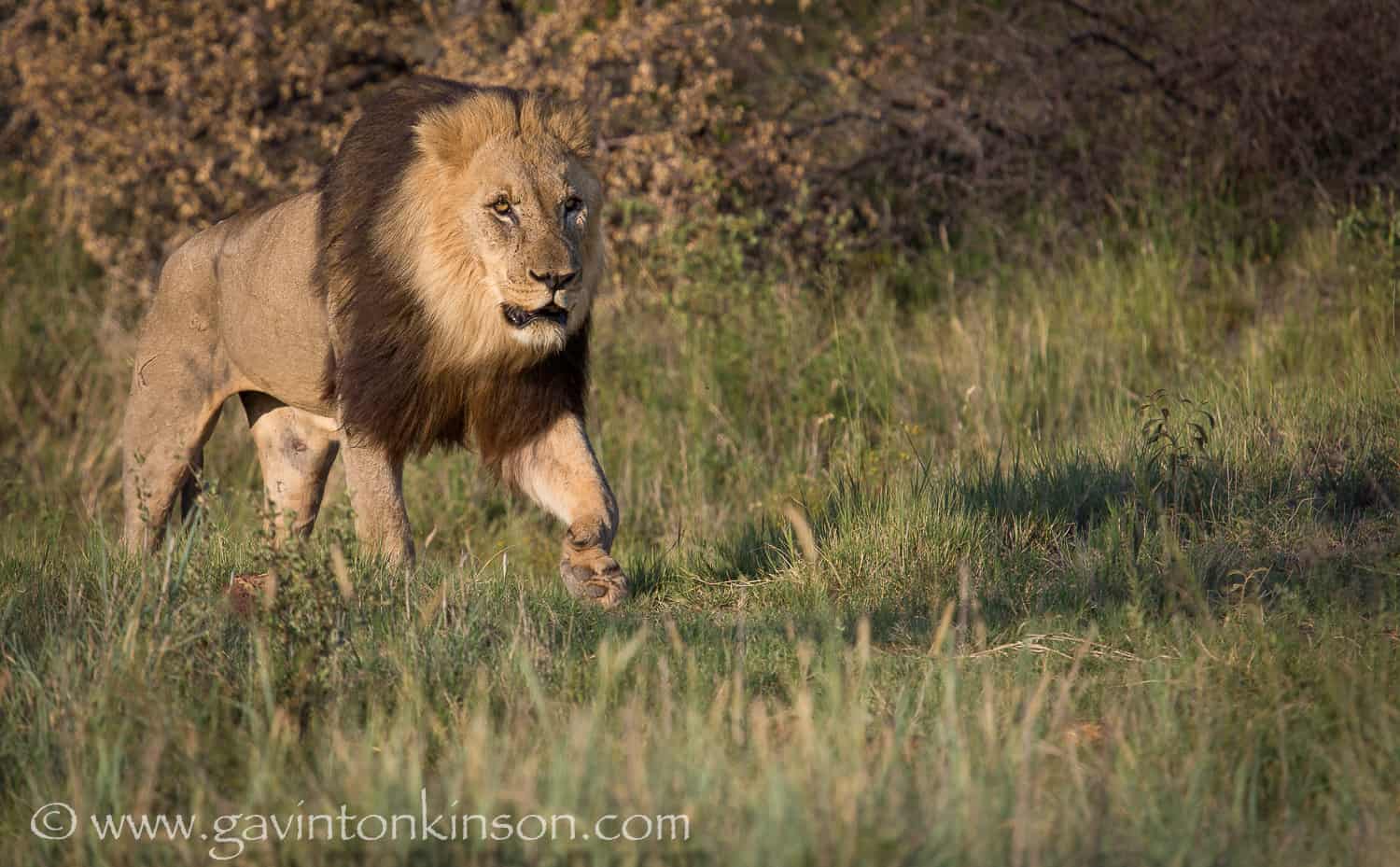
As far as the lions of Madikwe are concerned, all seemed to be stable in the north and west sections of the park. The Kwandwe and Monomoholo males seem to have settled into the task of running two different prides.
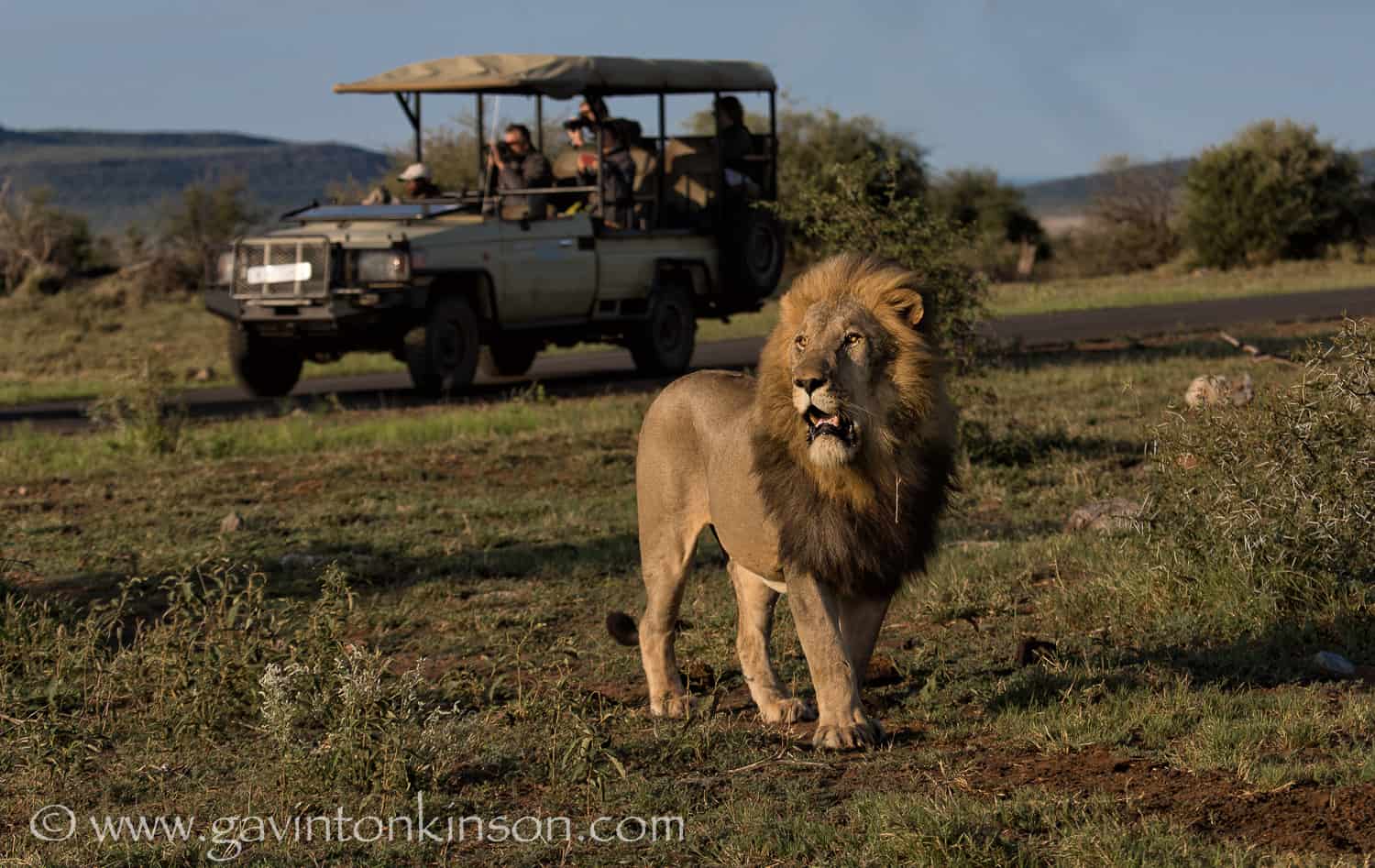
Every year around the month of May, adult male impalas transform from being very calm and relaxed looking antelope, to fierce, ego-driven maniacs as they try to gather a harem of about 20-30 females.
The annual rutting season is loud and at times very amusing as the male impalas are all challenging each other to earn the rights to real estate and females.


In this melee of mating, the males seem to forget to eat, which results in them losing condition, which ultimately results in a new male ousting the current one, where the whole saga starts all over again.
The females become receptive in the last week of the rutting period, and the ram which has endured this harsh mating routine will father of the lambs which will be born in December.
This is what makes impalas so resilient, as they seem to have the right recipe for success in terms of rooting out the weak genes amongst their ranks.
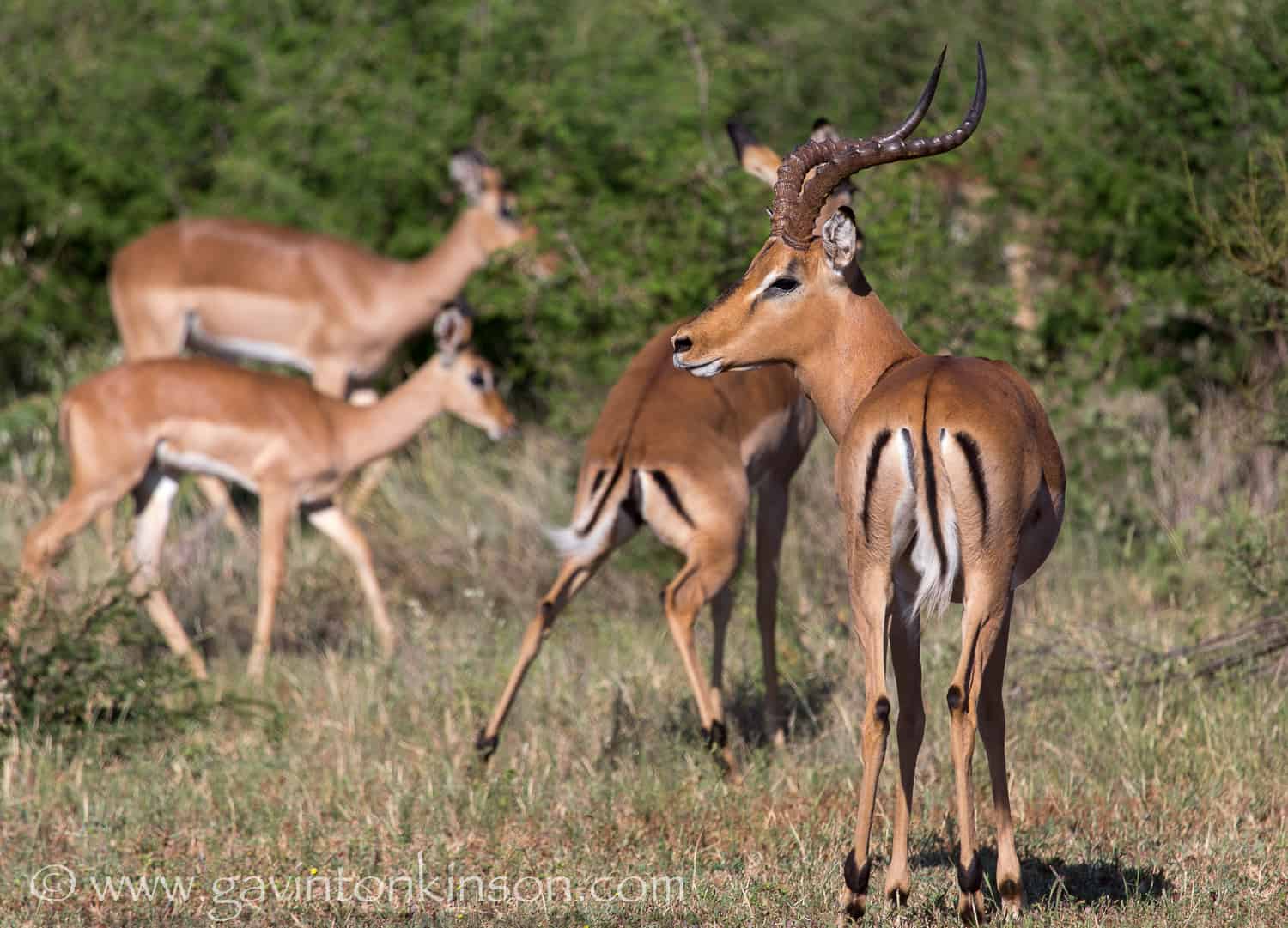
On a chilly morning in May, we came across a mob of Dwarf Mongoose as they sat at the entrance to an excavated termite mound, which brought out a few “ooohss” and “aahhhs” as the cute factor went through the roof.
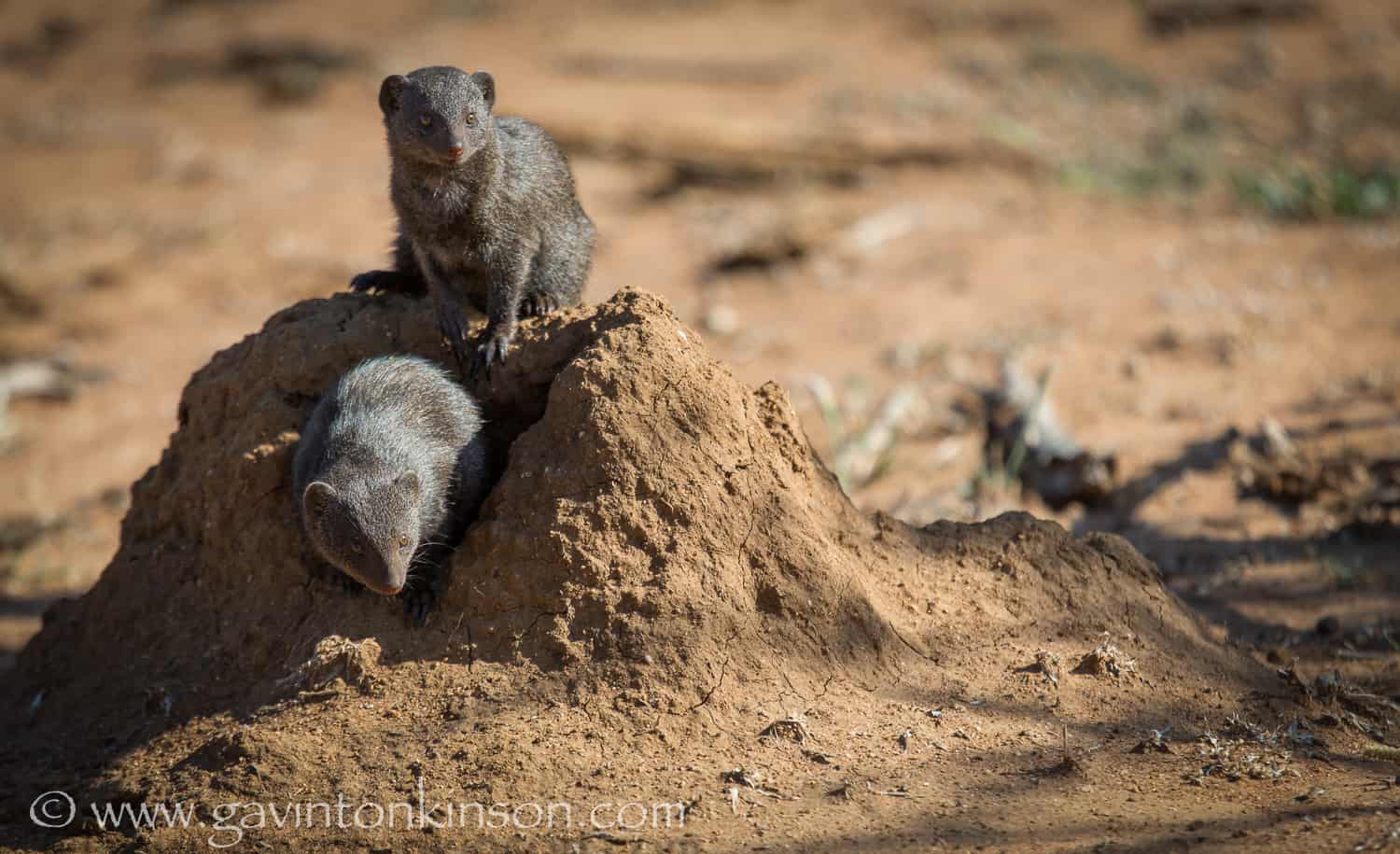
Munye remained elusive in April and May. We think he was busy trying to maintain his territorial boundaries which are quite large – as well as persue the female which has come in oestruc down in the south west of the reserve.


June
With winter in full swing, June brought with it bitterly cold mornings and spectacular sunsets. One of the highlights of June was undoubtedly the inroduction of the new female cheetah.
She was found on a kill and her future in Madikwe looks promising. She has been in contact with the two males in the north west.
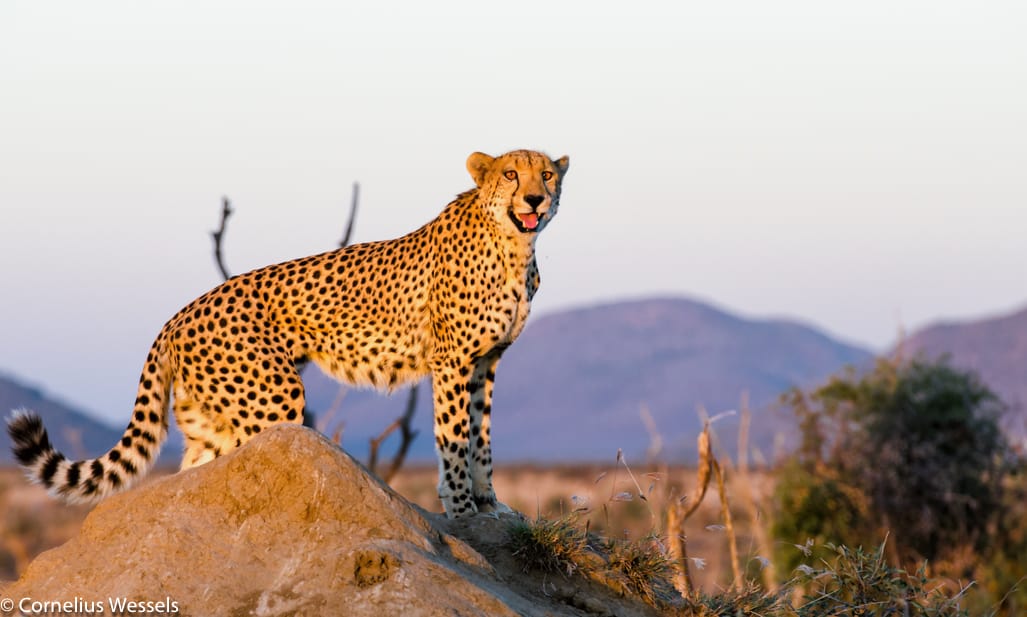
One evening after a successful cheetah tracking, we stopped at Tlou Dam to take in a beautiful sunset and in the last light we saw Wild Dogs approaching the dam. That in itself would have been amazing but then an unfortunate impala came for its last drink.
The dogs chased it for a short distance and the impala leaped into the water for safety. The water was shallow enough for the dogs and they made a very quick, easy kill.


We saw the pride of lions from the south a few times in June and twice on a kill.

Our luck also changed in June with leopard sightings as Munye made his appearance a few times.

July
The newly released cheetah female has been seen doing well and had even made a few kills of her own in July.
Munye also made a lot of appearances in July and the highlight was watching him hoise a kill high into a leadwood tree.
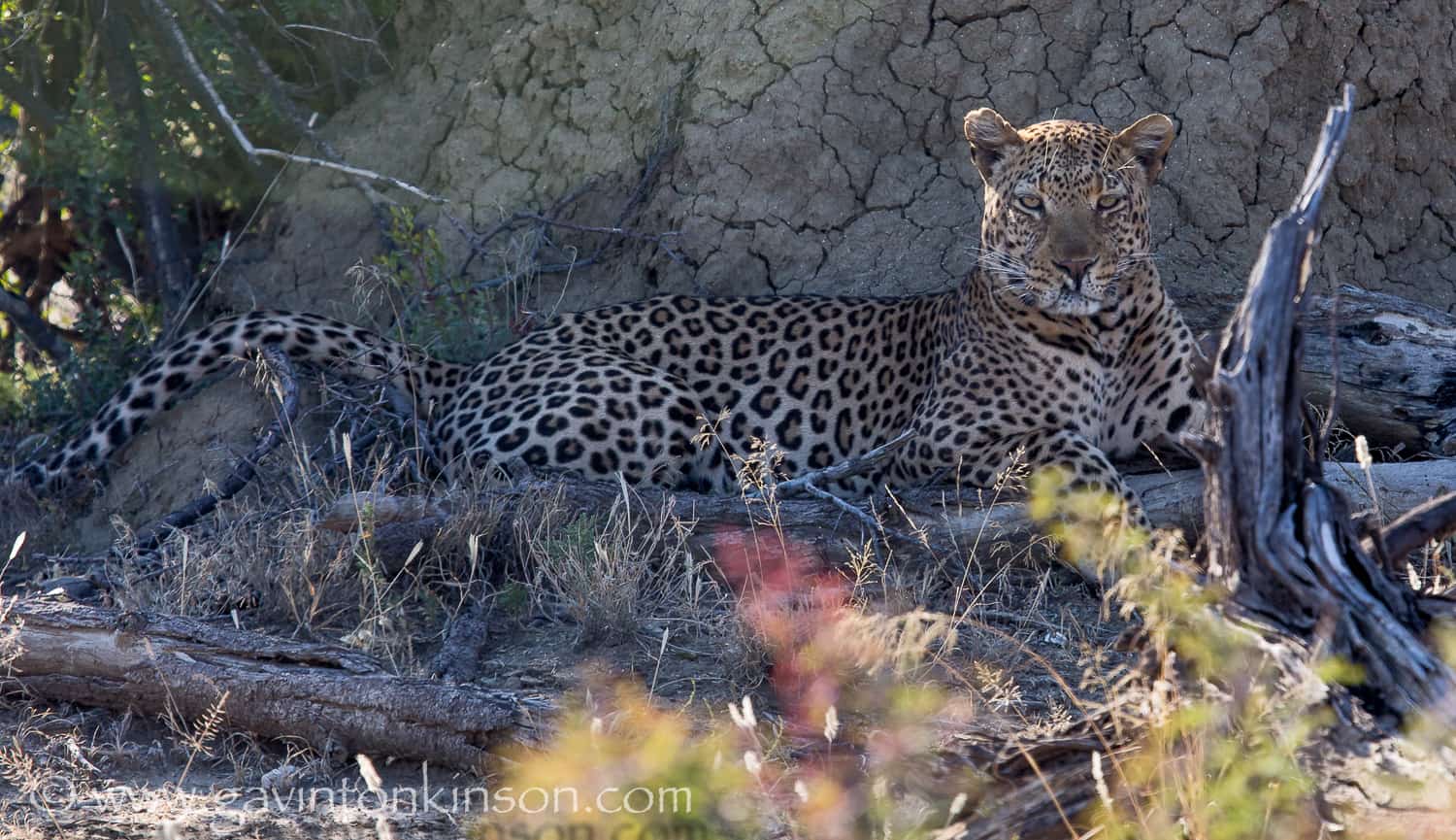
We had a great experience one morning as two male white rhinos were settling a territorial dispute at one of the waterholes.
They pushed each other around for some time, but not before kicking dust up into the air giving us a chance to get some great shots.
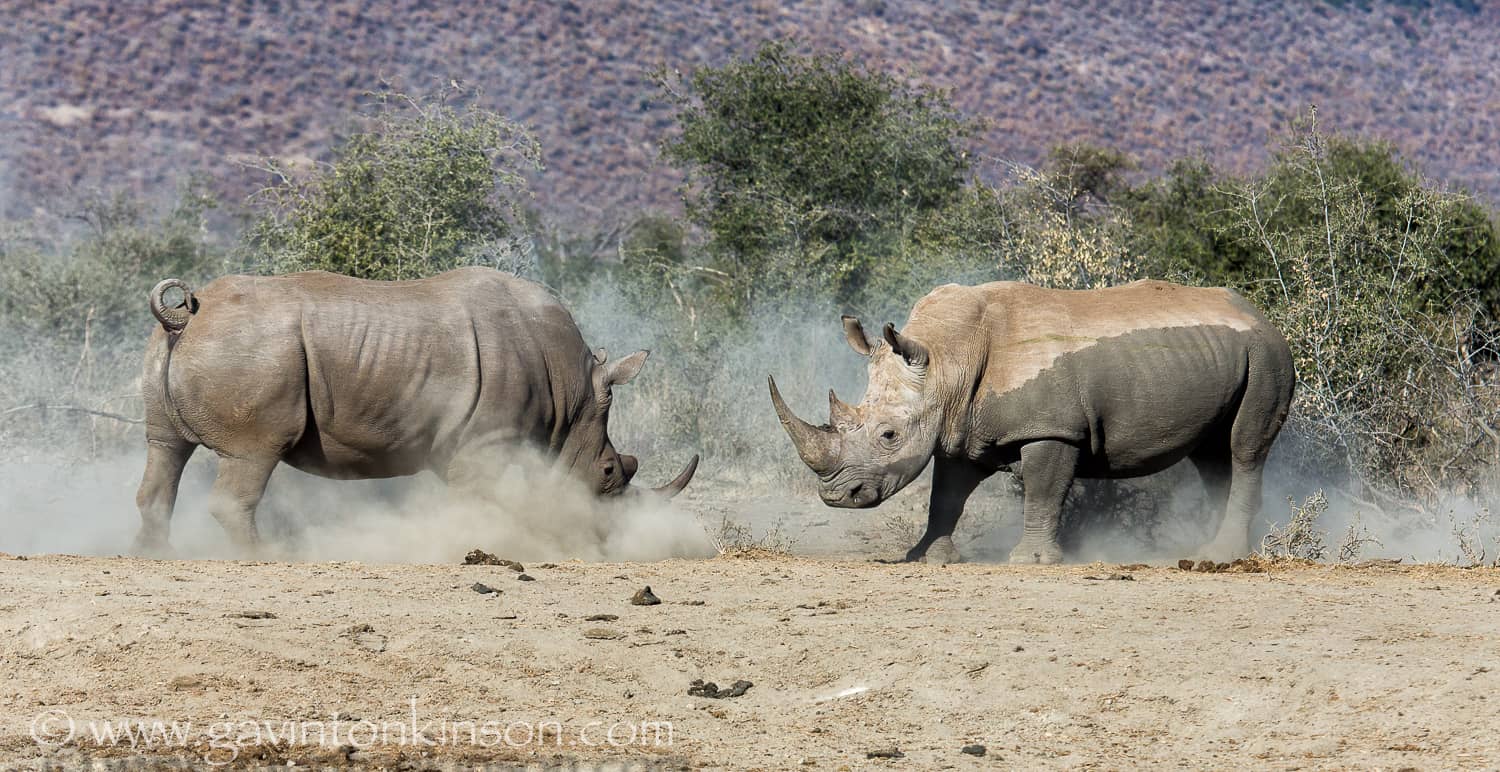
We also located the new den site for our clan of hyenas in the south.
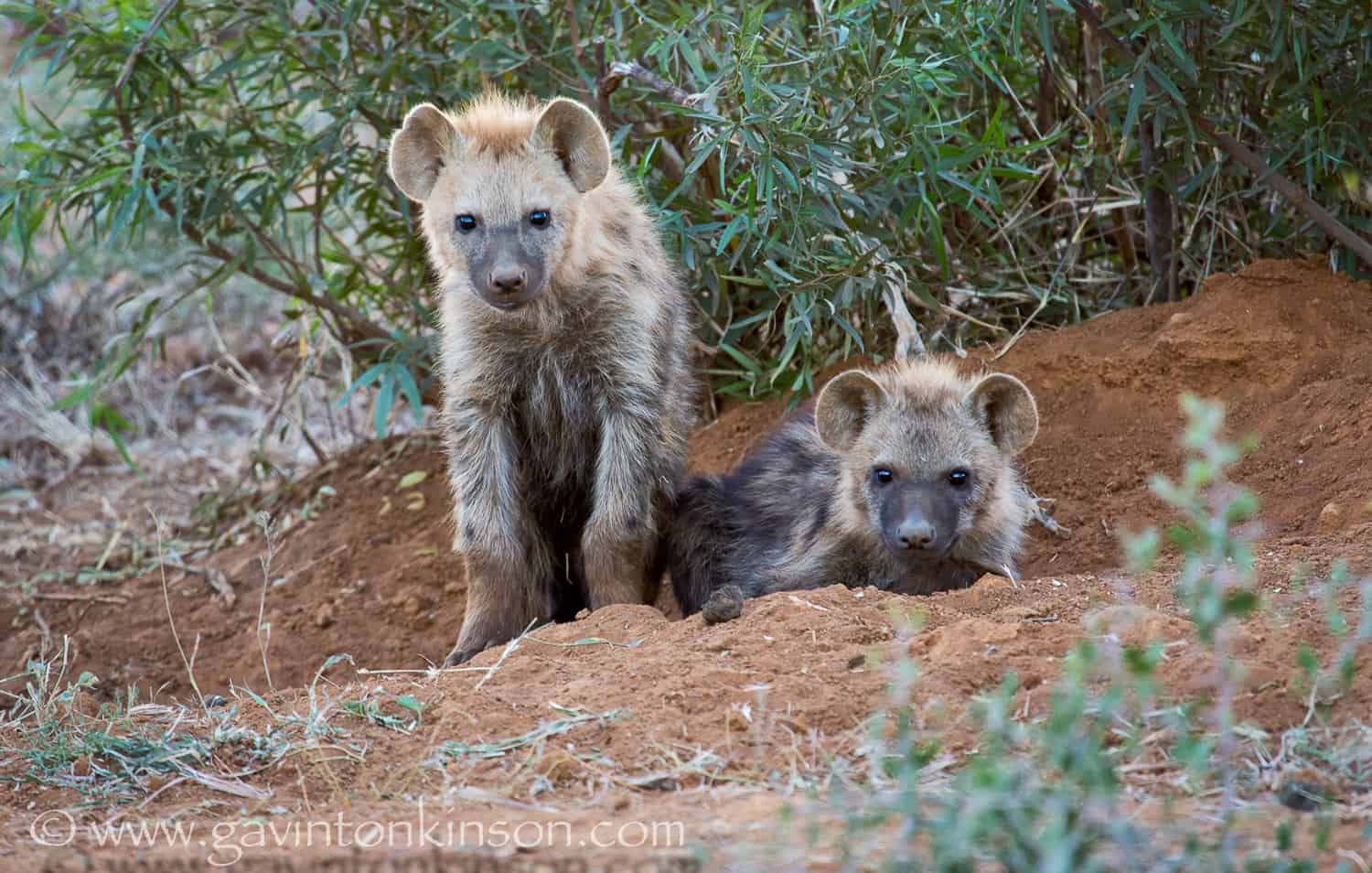
Keep your eyes on our social media channels for regular updates on highlights of our game drives. If you’d like to enquire about your own Madikwe Safari at Tuningi, please don’t hesitate to get in touch with us via email at book@tuningi.com. We look forward to welcoming you to our wildlife paradise.




